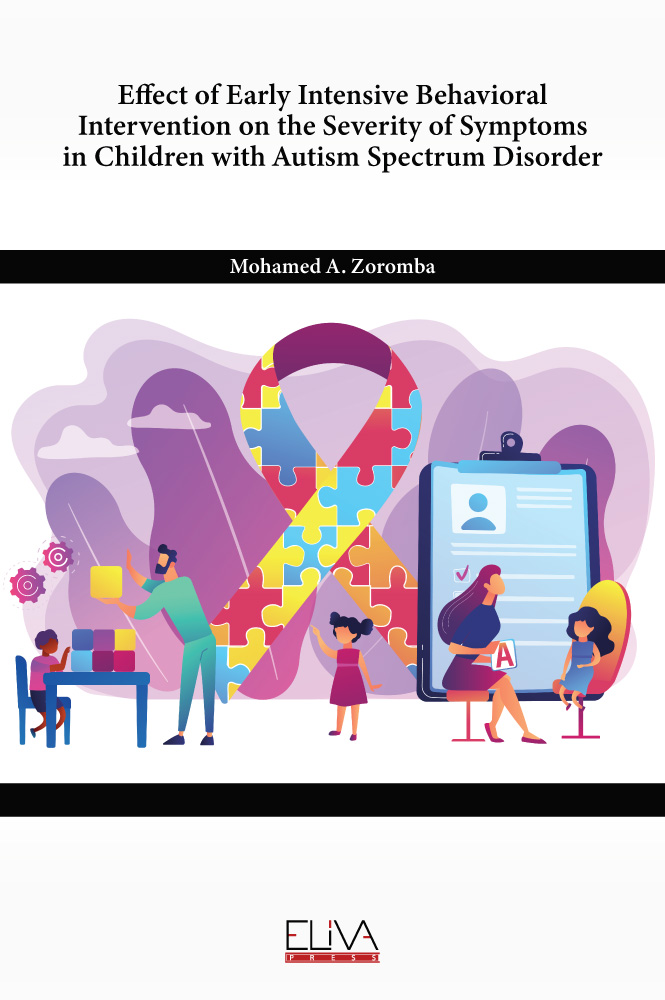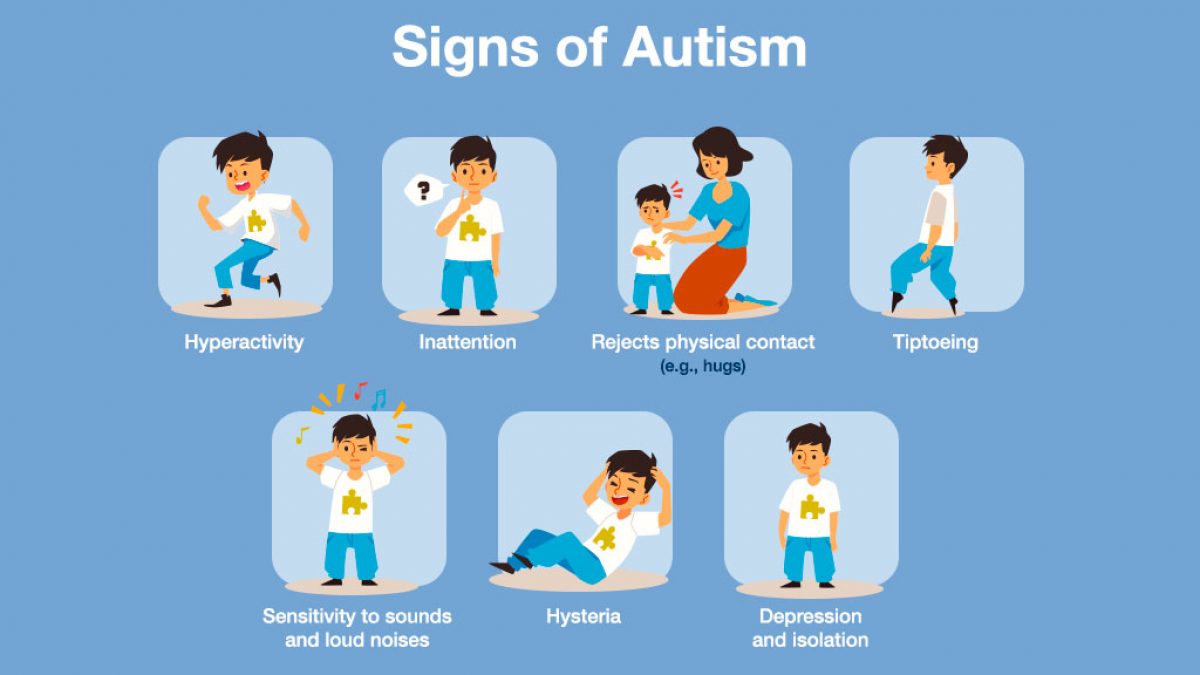Does Autism Behavioral Therapy deliver results? Find out how
Does Autism Behavioral Therapy deliver results? Find out how
Blog Article
Key Signs and Symptoms to Identify in Individuals With Behavior Autism
When you come across a person with behavioral autism, acknowledging crucial indications and signs and symptoms is crucial. You might discover obstacles in social interactions and interaction, as well as a solid requirement for regimens. Additionally, sensory level of sensitivities can bring about overwhelming experiences. Comprehending these qualities can boost your support and treatments, however there's even more to uncover about how these habits materialize in everyday scenarios. Allow's discover what these indications really resemble.
Challenges in Social Communications
When you connect with someone on the autism spectrum, you could notice they have a hard time with social cues and interaction. These challenges can make social communications feel overwhelming for them. You might see them preventing eye contact or standing also close or too far during conversations, which can develop misunderstandings. They might not notice body movement or face expressions, making it harder for them to gauge how others are really feeling.
When they do engage, they might speak regarding their rate of interests in excellent information without discovering if you're interested. Understanding these challenges can help you come close to communications with compassion and patience, fostering a much more comfortable environment for both of you.
Trouble With Verbal and Non-Verbal Interaction

Recognizing these indicators is crucial, as it aids you far better support and engage with individuals on the autism spectrum. By understanding their communication obstacles, you can foster a lot more meaningful links and provide a much more encouraging environment.
Repeated Actions and Regimens
Interaction challenges usually go along with other indications of autism, such as repeated habits and a solid choice for routines. You may discover that individuals with autism commonly engage in specific, repetitive actions, like hand-flapping, shaking, or duplicating expressions. These habits can provide comfort and a feeling of control in a typically frustrating globe.
Routines are similarly important; many individuals prosper when they follow an organized schedule. You might find that changes to these regimens can result in significant distress. If they have a daily ritual of consuming breakfast at a specific time or adhering to a particular route to institution, any type of disruption can cause stress and anxiety.
Recognizing these patterns helps you recognize their habits and offer support. By fitting their need for routine and enabling recurring activities, you can develop a more comfy setting that eases their difficulties.
Sensory Sensitivities

Typical Sensory Triggers
Sensory sensitivities can significantly influence life for people with autism, as certain stimuli typically cause overwhelming reactions. Common sensory triggers consist of loud noises, bright lights, and strong scents. You may see that abrupt noises, like alarms or alarms, create anxiety or distress. Fluorescent illumination in shops can feel unpleasant and harsh. Textures can also play a significant role; rough materials or specific food appearances may be excruciating for you. Furthermore, crowded places can bewilder your detects, making it hard to focus or unwind. Comprehending these triggers can assist you handle your atmosphere better. By understanding what impacts you, you can take actions to lessen pain and enhance your day-to-day experiences.
Behavioral Feedbacks Discussed
Recognizing your behavioral actions to sensory sensitivities is essential, as they usually reveal just how you engage with the globe. You may also find yourself looking for specific sensory experiences, like deep stress or peaceful atmospheres, to assist ground yourself. Acknowledging these patterns aids you comprehend your needs better and can guide just how you interact them to others.
Coping Techniques Review
Acknowledging your sensory sensitivities is just the first action; now it's time to explore coping methods that can aid you handle those experiences effectively. Begin by creating a sensory toolkit tailored to your demands. Establishing a structured routine can additionally supply predictability, reducing anxiety around sensory overload.
Limited Passions and Emphasis
While several individuals develop a variety of interests, those with autism typically demonstrate restricted interests and an intense emphasis on details subjects. You may notice that someone with autism can spend hours delving into their favored subject, whether it's a particular sort of train, a particular website link motion picture, or a scientific concept. This intense focus isn't simply a hobby; it can become a main component of their identification and social interactions.
You might locate that conversations focus on these rate of interests, and they might battle to take part in more comprehensive topics. For them, these focused rate of interests give comfort and a feeling of mastery. While it is very important to urge expedition of new topics, appreciating their interests is similarly important. By understanding and acknowledging these limited passions, you can cultivate an encouraging setting where they really feel valued and comprehended, permitting more purposeful connections and communications.
Emotional Regulation Difficulties
People with autism usually deal with difficulties in emotional law, which can be influenced by their extreme focus on specific rate of interests. You might discover that when a person is deeply taken part in a preferred task, they can experience solid feelings, whether enjoyment or frustration. This strength in some cases makes it difficult for them to change gears or manage their sensations when things don't go as intended.

Variability in Developing Turning Points
When it comes to developmental turning points, you'll discover that people with autism typically reveal a large array of variability. You might see a youngster stand out in language skills however battle with social communications.
It's crucial to recognize that each individual's journey is special. Observing these patterns can help you recognize their toughness and requires much better.
Often Asked Questions
Exactly How Is Autism Detected in Children and Adults?
To identify autism in kids and grownups, professionals assess actions, interaction skills, and social communications. They frequently utilize standardized tests, interviews, and monitorings to establish if an individual satisfies the criteria for autism range problem.
Are There Different Kinds Of Autism Spectrum Disorders?
Yes, there are various kinds of autism spectrum disorders, consisting of Asperger's disorder and pervasive developmental disorder-not otherwise defined. Each type varies in seriousness and qualities, so recognizing these distinctions can help you far better support individuals with autism.
What Treatments Work for Individuals With Autism?
When considering efficient treatments for people with autism, you'll locate alternatives like Applied Behavior Evaluation, speech treatment, and occupational therapy. Each approach can aid boost communication, social skills, and daily working customized to specific needs.
Can Individuals With Autism Lead Independent Lives?
Yes, individuals with autism can lead independent lives. With the ideal support, abilities training, and resources, you can assist them create self-sufficiency, take you can find out more care of everyday tasks, and grow in numerous environments, promoting their freedom.
How Can Households Assistance Liked Ones With Autism?
You can sustain your liked ones with autism by producing a structured environment, encouraging their interests, exercising persistence, cultivating interaction, and advertising social skills. Commemorate their accomplishments, despite just how small, and build an encouraging community.
Although numerous individuals on the autism spectrum can understand and use language, they usually encounter substantial obstacles with both verbal and helpful hints non-verbal interaction. Recognizing these indications is important, as it helps you better support and engage with people on the autism range. You could see that people with autism frequently engage in specific, repeated activities, like hand-flapping, shaking, or repeating phrases.Sensory level of sensitivities can significantly impact day-to-day life for individuals with autism, as particular stimulations usually trigger overwhelming reactions.When it comes to developmental landmarks, you'll observe that individuals with autism typically reveal a vast array of variability.
Report this page